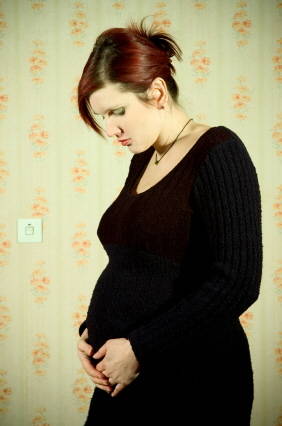In this blog, you will find information about syphilis in pregnancy and on how it affects your pregnancy.
Syphilis belongs in the sexually transmitted infections group caused by the bacterium called Treponema Pallidum. Pregnant or not, untreated syphilis can lead to serious long term consequences. An early detection and treatment of this bacterial infection can lead to a healthy direction for the mother and her baby.
Like all other STD’s, syphilis can be also transmitted by direct sexual contact with a sore from an infected person. Sexual contact is one of the common ways to get syphilis, but there is also a possibility to be infected with a simple kiss from someone that has a syphilitic sore around the lips.
This infection can be passed from a mother to her baby through the placenta, if the infection isn’t treated during pregnancy, a simple contact with a sore during birth will allow this infection to be spread on her baby.
Syphilis is a rare infection, but it still exist in communities that have inadequate access to health care, high levels of poverty or no education.
Syphilis manifestation
Syphilis is a disease that takes place in three stages designated as primary, secondary and tertiary syphilis. Women with primary syphilis do not know if they have it, there are no signs, or even if they do, these signs aren’t noticeable. You may not know whether you have syphilis until you are tested.
Primary stage: painless sore (durum ulcer) occurs 2-3 weeks after the initial contact, highly infectious and often goes unnoticed, especially if it’s located at the cervix of the uterus, rectum, or mouth. People who have primary syphilis that are treated in this stage will be cured. If the infection goes untreated the sore will recede spontaneously and the infection will pass into the bloodstream. This is where the disease takes a big step forward into the second stage.
Second stage: this is the most developed stage of syphilis. In this stage syphilis has various symptoms that can show up in weeks or months after the sore appeared for the first time. People that have secondary syphilis may experience non-itchy rash on their palms, vaginal lesions, wart-like sores in the genital area, weight loss, hair loss and flu-like symptoms. If this condition goes untreated, the symptoms will generally disappear within few months. The bacteria stays in the body and it will multiply during the latent phase.
Third stage: One in three people who didn’t receive the appropriate treatment will progress to the tertiary syphilis. What is surprisingly about the tertiary syphilis, it may develop after 30 year after the infection causing serious heart abnormalities, brain damage and destructive skin changes called skin tires. Only a few people end up with such symptoms these days; most people get their treatment on time.
Can syphilis affect pregnancy? How can I protect my baby?
As mentioned earlier, syphilis can travel from the bloodstream across the placenta and infect your baby. You must be treated promptly, or this infection will affect pregnancy and increase the risk of preterm birth, intrauterine growth restriction, miscarriage or stillbirth.
Babies born with syphilis who do not have the usual symptoms, without any treatment will develop some symptoms within the first month after birth. The untreated syphilis can develop bone and teeth deformities in these babies. That is why all pregnant women and babies who may have syphilis should be evaluated and treated immediately.
Treatment
The only cure for syphilis in pregnancy that can keep you and your baby safe is the penicillin. Penicillin is a successfully proven treatment for many years. You’ll get one or more penicillin injections; it all depends in which stage of the disease you are in. If you are allergic to penicillin first you are going to be desensitized and then you can receive it.






